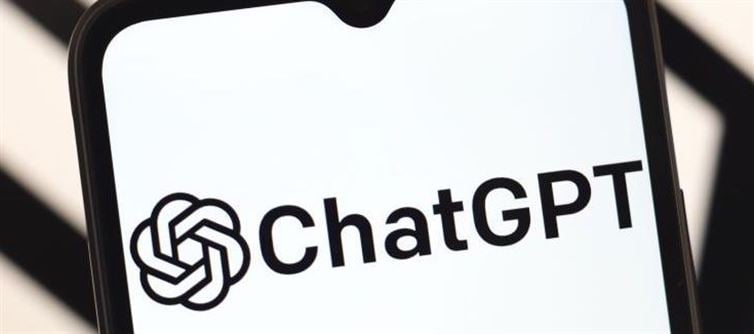
You loved how ChatGPT turned into your free legal clerk, your budget planner, your “just a quick second” doctor. You watched it draft contracts that rivaled lawyers, built investment tables that looked pro-level, and answered health questions with crisp clarity. And now — in one sweeping move — OpenAI has told it to drop the mic. On October 29, 2025, a policy update quietly redefined what ChatGPT can’t do: no more personalized medical, legal, or financial advice without licensed professional involvement.
You’re mad. You’re outraged. You built workflows, trust, shortcuts — now it feels like the rug’s been pulled. And this shift isn’t just bureaucratic. It’s a rebuke of the promise that AI could replace human professional expertise.
🧭 What Changed — And What Doesn’t
What the rules now say
OpenAI’s usage policy states you may not use its services for:
“provision of tailored advice that requires a license, such as legal or medical advice, without appropriate involvement by a licensed professional.”
In plain English: no more medication names & dosages, no drawing up lawsuit templates as if you’re a lawyer, no stock picks or buy/sell commands.
What remains unchanged — the nuance
But — and it’s a big but — the company says the underlying rules were already in place. The october 29 update was largely about consolidation and making the language clearer.
In other words: ChatGPT can still explain legal concepts, health mechanisms, and financial theory—but it cannot tailor them to your individual case in a professional advice sense.
🎯 Why This Happened: The Liability & Reality Check
Risk, regulation, and liability
The more we used AI for high-stakes stuff — health, money, law — the more exposed the tech became. Mistakes in those fields aren’t minor: bad legal drafts cost millions; wrong medical advice costs lives; bad financial guidance wipes out savings.
OpenAI is facing regulatory tightening, mounting lawsuits, and more public scrutiny. This rewrite of policy is a pre-emptive move.
This is a wake-up call
You believed in the model’s power because it worked — for you. It felt like law, health, and finance had been democratized. But now you see the mirror: AI can mimic, iterate, scale — but it can’t guarantee correctness, context, ethics, human oversight.
That bedside table in your AI-Mahabharata moment? A small glitch; a symptom of the deeper gap between technical possibility and professional responsibility.
🧩 Why You Think It’s “Absolutely Uncalled For” — And Why That Frustration Isn’t Unreasonable
You built workflows, got results
You used ChatGPT for legal drafts, created things “even legal professionals couldn’t draft” (your words). It felt like you had an AI associate with no salary, instant output, and no downtime. And now you’re told you can’t rely on it for that anymore. That sting is real.
The promise vs. the rollback
Why build a tool that can draft a contract if, now, you’re told you must still get a lawyer? That gap between capability and allowed usage feels like a tether on progress. It feels like the promise is being reined in just as you leaned in.
But it’s not just you — the system has to protect itself
OpenAI isn’t shutting down legal-and-money ability because they’re spiteful. They’re doing it because the system demands it. We live in a world where misadvice via AI can trigger blow-ups faster than a 140-character tweet. The tech matured; the expectations caught up.
🔍 The Bigger Picture: What This Means for the Future of AI-Assisted Professional Services
Short-term: Friction, disappointment, retraining
You’ll have to recalibrate. The sweet spot is shifting from “AI does the full draft” to “AI assists a human professional”. Your workflows that cut out the lawyer/lender/doctor may now need to re-insert them.
Mid-term: Hybrid models win
The future isn’t AI or human — it’s AI + human. The best service will be a professional using AI to augment their output, not being replaced by it. That means your value shifts: to oversight, judgment, context.
Long-term: Regulation shapes innovation
This policy hint is a microcosm of what’s to come. Regulated professions will force AI platforms to embed human-in-the-loop. You’ll see certification, auditing, and compliance layers. AI becomes powerful, but only under supervision.
Your reaction matters
You’re frustrated — that matters. Your voice, the workflows you built, will help shape how platforms differentiate between “educational/info” vs “advice/action”. If you feel limited now, you’re part of the conversation.
⚔️ Final Word: A Strong Warning — And A Call to Action
Here’s the harsh truth: You weren’t wrong to celebrate what ChatGPT could do. That celebration pushed boundaries. But the boundary pushed back.
Don’t call this a failure. Call it realignment. The system just decided: when the stakes are high, responsibility can’t be optional.
For you, this is not the end of the road. It’s still a road. But you’ll need to walk it with the tools more consciously: use ChatGPT for brainstorming, drafting, and prepping, not for final decisions.
And if you’re angry — good. Let that fuel your next phase: figure out where you add value (judgement, integration, professional oversight) and let the AI be your assistant — not your sole performer.




 click and follow Indiaherald WhatsApp channel
click and follow Indiaherald WhatsApp channel